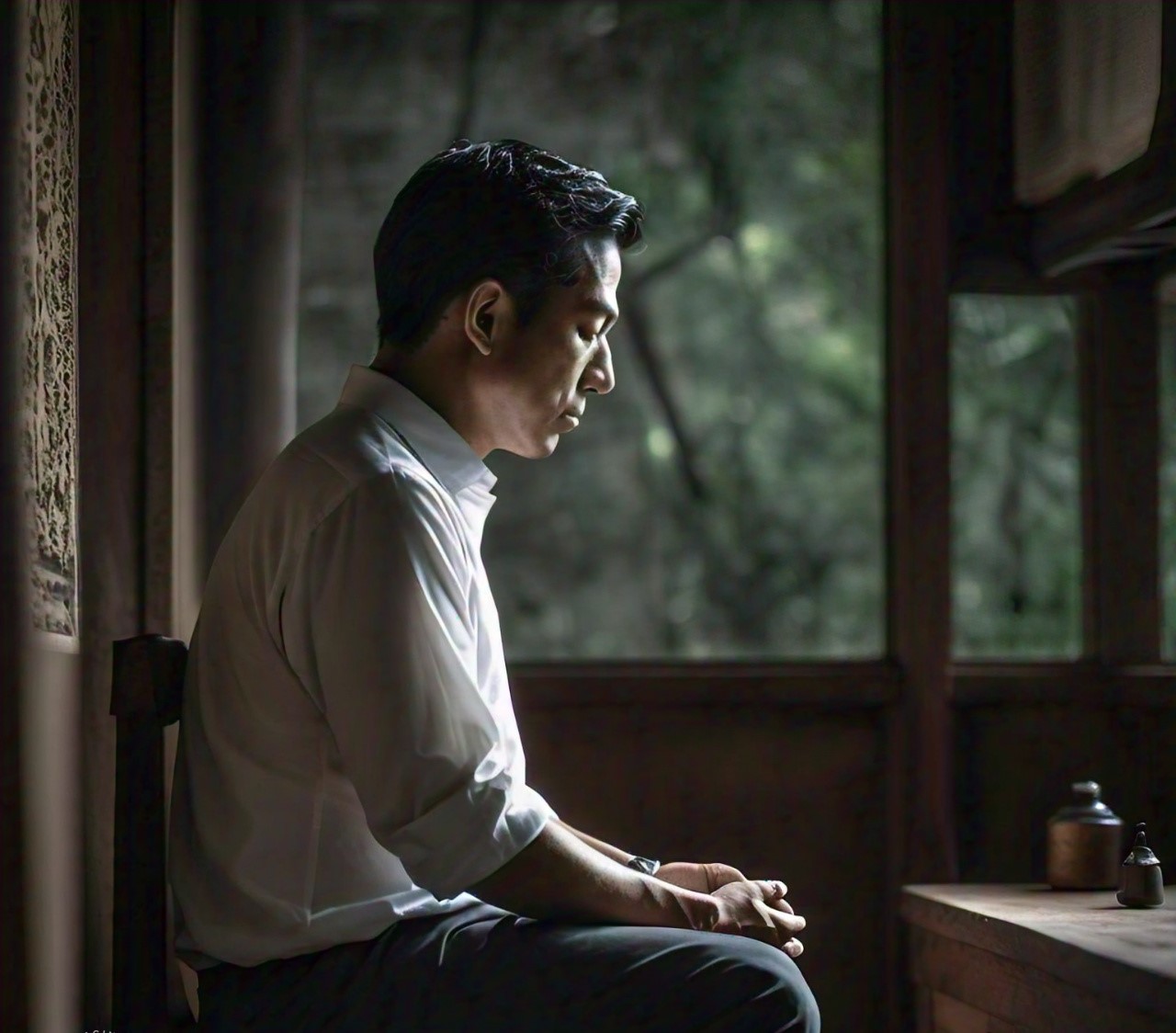I don’t know if you know this but truth has never been cheap. From the ancient philosophers who challenged empires to the whistleblowers of today who risk careers and reputations, truth-telling has always carried a price. Many times speaking and saying what is real, what is right, what is necessary often invites anger, resistance, and even worse outright hatred. And yet, to remain silent, to bend, or to flatter with lies carries a far greater cost: The erosion of your integrity and the corruption of your soul.
The Stoics understood this very clearly. Marcus Aurelius reminded himself that doing what is right was far more important than being liked. Epictetus warned that silence in the face of wrong was no different than agreeing with it, and modern thinkers say and repeat the same thing: If you see fraud and don’t call it out, you become part of the fraud.
So the question then and now is simple but hard: Will you risk being hated for the truth, or will you settle for being loved for a lie?
The Cost of Speaking Truth
Speaking the truth is sometimes not comfortable; it can cost you friends, followers, promotions, and sometimes even your safety. A soldier risks being sidelined for pointing out flaws in leadership; a politician risks losing supporters for admitting hard realities. A person risks losing some friend for refusing to nod along with gossip, lies, or corruption.

The truth is disruptive because it challenges illusions, and many people cling to convenient falsehoods stories that protect their ego, thier power, or their comfort, and when you pierce that bubble with honesty, they often lash out, not because the truth is not valid, but because it exposes what they would rather avoid. Marcus Aurelius faced this pressure daily as emperor of Rome, surrounded by flattery and opportunists, he reminded himself not to be corrupted by lies or swayed by popularity, but to live according to reason and most importantly virtue, because to him, doing right was more important than being praised, and speaking the truth was more vital than keeping peace.
Yes, the cost of honesty can be sometimes be heavy, but the cost of dishonesty is losing yourself and that is far worse.
Silence as Complicity
When we choose silence in the face of wrongdoing, we may think we are protecting ourselves. We may tell ourselves, “It is not my place,” or “It is not worth the trouble.” But silence is usually not neutral; it is many times a form of participation, because by withholding the truth, we allow lies to spread unchallenged, and by staying quiet, we enable injustice to continue unopposed.
The Stoics were clear on this point: Virtue requires action. Epictetus said that a person who knows the truth but does not live it is no better than one who is ignorant of it. Nassim Taleb went even further to sharpened this into a brutal rule: “If you see fraud and do not say ‘fraud,’ you are a fraud.” In other words, silence makes you part of the very thing you claim to reject. And history offers plenty and plenty of painful reminders; how many evils, whether in governments, institutions, or even families were allowed to start and continue because those who knew the truth chose silence? How many lies continue today because speaking up feels inconvenient?
So know this, when you shrink back, you may gain temporary safety, but you will lose credibility, courage, and ultimately your own freedom. To remain silent is not just cowardice; it is complicity.
It is a seductive lie most people too often than not, tell themselves: If I do not look at it, if I act like I did not see it, I am not responsible for it. If we can keep our eyes shut, then our hands will be clean, and our hearts untouched, and we can go on with life guilt-free, but deep down, we know better, at least for the most of us. To deliberately ignore what is wrong is to quietly and other times openly accept it. In other words, to stay silent in the face of danger, injustice, or corruption is to participate in it.
And another thing is this; this lie is not new. Following the Daily Stoic podcast by Ryan Holiday, in Shakespeare’s Richard III, the character Brackenbury receives a clear order that will result in the murder of an innocent man, and what was his excuse? “I will not reason what is meant hereby, because I will be guiltless from the meaning.” But history and morality do not accept that kind of denial, and according to Ryan Holiday, neither does Stoicism.
Continue Reading: Closing Your Eyes Is Not An Excuse
The Stoic Call to Courage
The Stoics did not hesitate to tell the truth at least for many of them but they knew it was difficult and often dangerous, yet they insisted it was essential to a life of integrity. Marcus Aurelius wrote that it is better to follow the truth and be hated than to follow falsehood and win praise, and Seneca, who lived under the tyranny of Nero, reminded himself that while fortune could strip away possessions, power, or even life itself, no one could take away his ability to live and die honestly.
Courage, for the Stoics, was not about fearlessness but about acting rightly despite fear. Speaking the truth, especially when it carries personal risk, is one of the highest forms of this courage. It is an act of resistance against corruption, against cowardice, and against the human tendency to prioritize approval over principle. And this call to courage is not just ancient philosophy; it echoes in spiritual traditions too. The Bible urges believers to “speak the truth in love,” reminding us that truth without courage becomes silence, and truth without love becomes cruelty. True strength is found in blending honesty with wisdom and compassion, even when others do not welcome it.
So to my dearest readers; the world does not always reward truth-tellers, but it depends on them. Every act of courage creates ripples; every word of truth spoken with integrity lights a fire that cannot be extinguished.
Read Also: Doing The Right Thing And Standing Tall in The Storm
Read Also: What is Objective Truth: Is Truth Even Objective or Subjective?
Read Also: Beyond Recognition: The True Measure of Goodness
Conclusion
Again the choice is never easy; to speak truth may invite anger, criticism, or even hatred. To stay silent may grant comfort, popularity, or temporary peace, but one of these paths kills the soul, while the other strengthens it.
So indeed it is better to be hated for telling the truth than loved for upholding a lie. Better to lose applause than to lose yourself, and better to carry the weight of honesty than the shame of silence. The Stoics remind us that our duty is not to be popular but to be principled! Not to win favor but to live with virtue! And while the world may shout, while some may turn against us, the reward of courage and integrity far outweighs the cost.
So speak the truth! Live the truth! Be the light and let is shine and burn in the face of darkness!
If you look for truth, you may find comfort in the end; if you look for comfort you will not get either comfort or truth, only soft soap and wishful thinking to begin, and in the end, despair. C. S. Lewis
It is the quote by C.S Lewis that has been making me ponder since today, about truth and standing for truth. And in my head over and over and over again, I have broken this quote in segments and that is precisely what I want us to talk about today.
And so again:
If you look for truth, you may find comfort in the end; if you look for comfort you will not get either comfort or truth, only soft soap and wishful thinking to begin, and in the end, despair. C. S. Lewis
Continue Reading: Seeking And Facing The Truth Above All Else
- “If you look for truth, you may find comfort in the end;”
- “If you look for comfort, you will not get either comfort or truth”
- “Only soft soap and wishful thinking to begin,”
- “And in the end, despair.”





